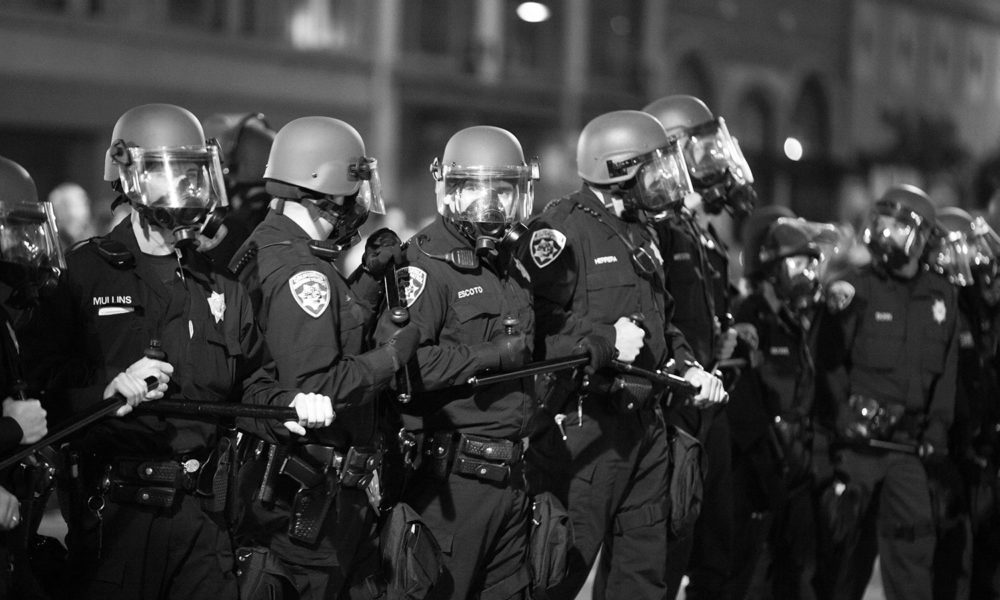Many of us in the US will remember 2020 as a tough and life-changing year: a deadly pandemic, national lockdowns, and widespread civil unrest. The coronavirus pandemic has exposed the racial disparities and inequalities still present in America, with Black, Indigenous, Latinx, and other marginalized communities disproportionately bearing the economic and health burden of COVID-19. On top of these crises, the U.S. has been directly confronted by the simultaneous public health crisis of police violence, which showed to be a pervasive and deadly problem of systemic racism in America that many hadn’t realized. The extrajudicial killings of George Floyd, Breonna Taylor, Tony McDade and many other Black Americans at the hands of police sparked a renewed public outcry for changes in policing. Scientists –yes, scientists–should step up and demand the end of police violence while reflecting on the racism present in academia and the scientific community at large.
The US fails to systematically collect data on policing
As a Ph.D. candidate at Johns Hopkins University working on pancreatic cancer invasion, stepping into a new project regarding police violence was quite daunting, as I am not an expert in the field. However, throughout my fellowship with the Center for Science and Democracy, I have experienced how the skills I have gained during my doctoral education can be applicable to science policy challenges. Additionally, it is clear that the country faces problems in policing, with daily incidences of excessive force and instances of racial bias. Scientists have a responsibility to step up, understand the complexities and depth of racism in policing, and advocate for solutions. As part of my fellowship at UCS, I examined the reporting of police use of force and misconduct in the United States.
The U.S. doesn’t know how many and how often people are killed because of police fatal use of force. The lack of a comprehensive and easily accessible federal database to track and publicly report these fatal encounters, use of force, and other policing interactions has created a blind spot for police reform and accountability. The lack of a federal database has led several non-profit and media organizations, including Mapping Police Violence or The Leadership Conference, to start databases collecting such information, estimating that more than 1,000 individuals in the US are killed every year by police officers. While Black Americans constitute 13% of the US population, they are being shot and killed by police between 2.6 and 3.5 rates higher than white Americans. Importantly, much of the research of policing has focused on lethal or excessive use of force, overlooking other types of force (verbal, psychological), which has been shown to negatively impact the mental health of individuals and undermine social cohesion in communities.
Communities and researchers need access to more detailed data that is timely and accessible. There are currently tremendous barriers to obtaining data around policing. It can take months and even years for communities and researchers to obtain detailed data.: “This has to change. It should not take several years to find out when, where & how police behave in a single community”, said Johnathan Mummolo recently, a political scientist in Princeton working on policing. The lack of data transparency regarding policing reflects an even deeper and disturbing reality: the use of anti-democratic practices, even in a democratic country.
A federal database would allow researchers to evaluate policy proposals introduced to reform policing, such as specific training for officers or the need to diversify police departments. This is a potential first step that the federal government could easily do, as this is well within the purview of agencies such as the CDC. Scientists can help answer basic questions regarding policing and evaluate some of the policies already implemented in communities. This can help the public and policymakers determine how to reform and reimagine policing in America, including deciding what role police should have in certain situations, and whether they should even have one.
Lack of data can’t mean lack of progress
While data is important, the lack of comprehensive information shouldn’t lead to a policy and public debate paralysis. We have seen the absence of data be used to prevent certain policy progress before. For example, the absence of federal gun violence research for more than 24 years was used to prevent all kinds of reform citing the absence of consensus. Indeed, public health policy decisions are often made when some scientific uncertainty exists. We have enough data to characterize the problem, which has led to the knowledge of several policy solutions to ensure people are better protected from police violence. While we need better data around policing, we also need urgent action, and the debate over policing is happening now. Working around this reality has been quite challenging – I’m quite used to always needing data to make progress in the lab. However, on this issue, we can grasp the effects of policing by talking and understanding the impacts it has had in Black, Latinx, and low-income, and other minority communities. People carry experiences, trauma, and suffer consequences that aren’t always reflected in data. Scientists, especially those not working in the field, need to understand the complexity of policing and structural racism and move beyond always having data as means to have a policy and public debate.
Is police reform possible?
The debate over policing is not just about reform, but whether law enforcement is even needed in certain situations or to solve certain social problems. The challenges in asking the right questions about policing can be faced when we get a hold on more policing details. In the meantime, Congress has started pushing for policing reform in order to address the issue. Recently, the George Floyd Justice in Policing Act was passed by the House and has yet to be voted in the Senate. The legislation moves the issue of policing in the right direction, by establishing a federal registry of police misconduct complaints, enhancing accountability for those officers committing misconduct, requiring the use of body-worn cameras, adopting training to fight racial profiling, and prohibiting the use of chokeholds or issuance of no-knock warrants. This highlights how policymakers can still aim to reform policing while efforts to get more information on additional targeted policy changes and analysis happen.
However, as reform happens, and we deepen our understanding of racism and policing, we need to be prepared to engage in debates that challenge our understanding of what policing means and whether reform is even possible. There are many ways to get involved and understand more about this issue. Make sure to look beyond data and the country’s statistics, and look for people, researchers, and organizations in the Black community that have been working on this issue for decades. Data regarding policing is extremely complex, and it is also essential to understand other issues such as other systemic barriers that communities face. Organizations such as Mapping Police Violence, Center for Policing Equity, or Data for Black Lives are a great starting point – amplifying their work is a good first step to increase awareness of their efforts in the scientific community. Additionally, find how your local or state government is dealing with this issue since many are introducing legislation to mandate better collection and reporting of data. Scientists have a role in being drivers for social justice and science should be a tool to advance society, even if that means stepping outside of our field of expertise.

